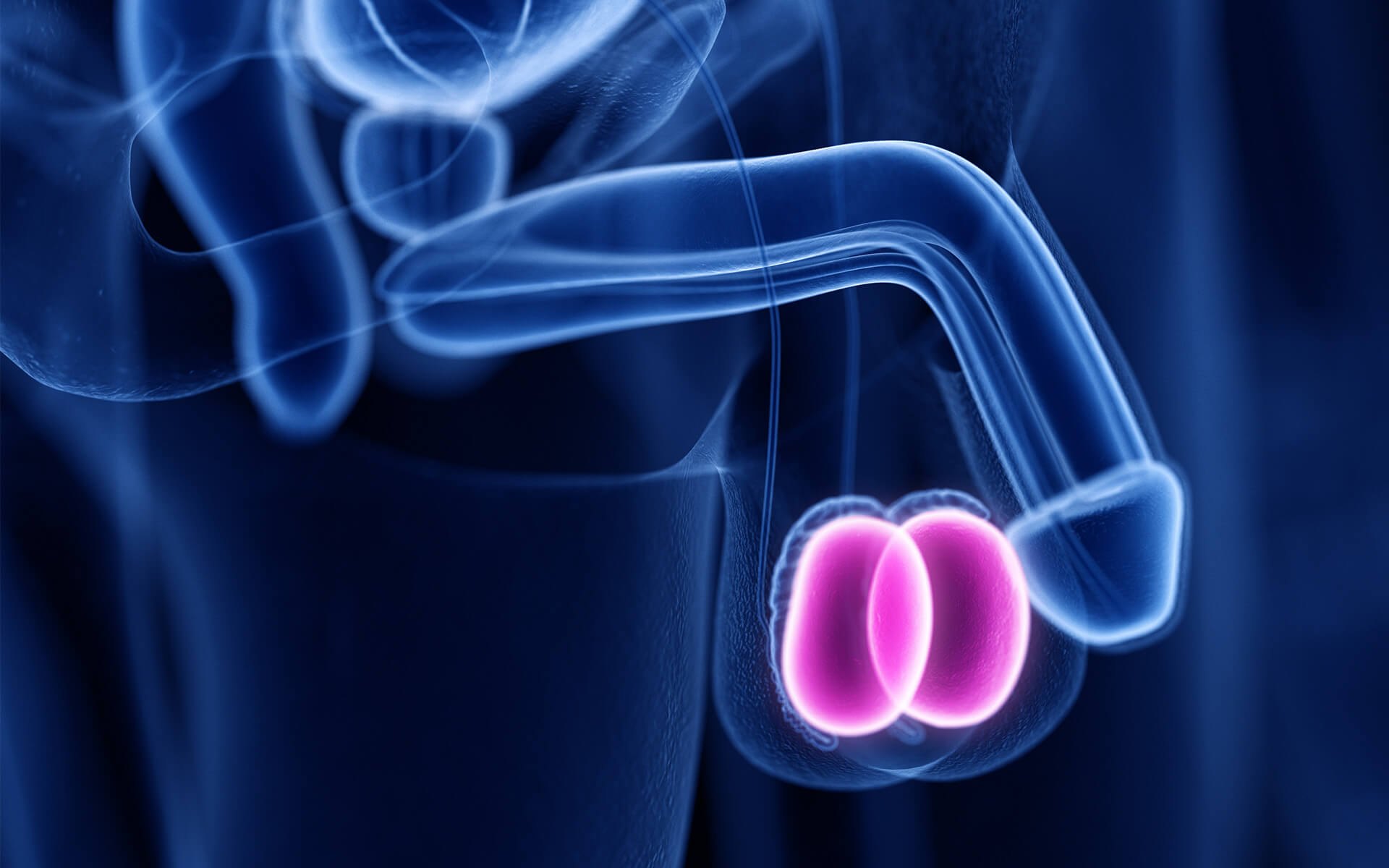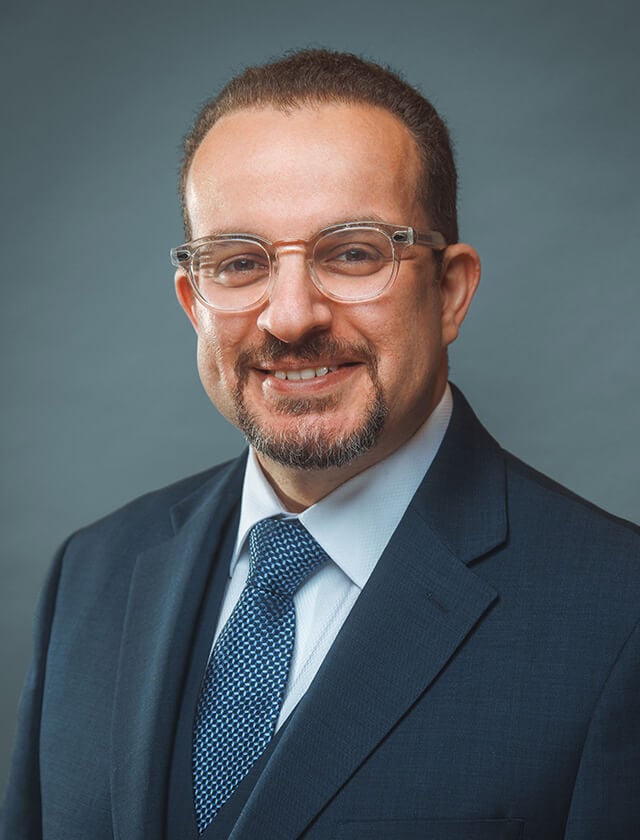Chronic testicular pain (also referred to as orchialgia) is intermittent or constant pain in the scrotum. The pain may come on suddenly and severely or may be gradual and long-lasting. By definition, the pain in the testicle(s) interferes with a patient’s ability to perform daily activities and lasts longer than three months. Chronic testicular pain affects about 100,000 men in the United States each year. If you are one of them, we can help.

Understanding Chronic Testicular Pain

What is Chronic Testicular Pain?
Symptoms
The primary symptom of chronic testicular pain is constant pain in the scrotum, affecting either one or both testicles. The pain may originate in the scrotum or may be experienced in the testicular region after originating from an alternate source, including the kidneys, pelvis, or from inflamed spinal nerves. Contact your doctor if you experience any of the following testicular pain symptoms:
- Pain: testicular pain can range from a dull ache to a sudden sharp pain
- Bruising: testicular injuries can result in bruising along the scrotum
- Nausea and vomiting: testicular injuries and other conditions, such as kidney stones, can leave you feeling sick to your stomach.
- Swelling: lumps, swelling, or a shiny-red appearance on the scrotum can indicate a testicular injury, orchitis, or tumor.
- Fever: when testicular pain is paired with a fever, it could be a sign of orchitis or other condition.
- Problems urinating: trouble urinating, blood in your urine, or a burning sensation when urinating can all be signs of kidney stones.
Causes
Identifying the cause of chronic testicular pain can be difficult due to a wide range of issues that can lead to the condition. In some cases, there is no obvious cause for the pain at all. In most cases, chronic testicular pain can be attributed to:
- Infections (sexually transmitted diseases or urinary tract infections)
- Trauma
- Inflammation
- Tumors
- Testicular torsion
- Low back strain
- Inguinal hernia
- Spermatocele
- Varicocele
- Musculoskeletal disorders
- Previous operations (hernia repair or vasectomy)
Risk Factors
Chronic testicular pain most commonly appears in men in their mid to late 30s. It is commonly associated with factors such as:
- Male factor infertility
- Lumbar and back pain
- Chronic prostatitis
- Stress
- Irritable bowel syndrome
Tests and Diagnosis
To diagnose chronic testicular pain, a medical professional will conduct a physical examination focusing on the scrotum and genital areas. They will also conduct a thorough review of your medical history, including sexual behavior and surgical events. Your medical professional may ask about the regularity of bowel movements, potential pain when voiding, if you engage in strenuous physical exercise, or if you sit for prolonged periods of time. In addition to a physical exam and medical history review, your medical professional may also order:
- Urinalysis and urine culture
- A scrotal ultrasound or abdominal-pelvic CT scan
- A spermatic block to help determine if the problem is neurological.
If your testicular pain coincides with simultaneous back or hip pain, a spinal MRI may also be recommended for diagnosis.
Treatments for Chronic Testicular Relief
In most cases, your doctor will recommend starting with conservative therapy for testicular pain relief, including:
- Heat or ice
- Scrotal elevation
- Anti-inflammatory medications
- Antibiotics
- Antidepressants
- Anticonvulsants
- Physical Therapy
- Low dose anxiolytics
- Neuromodulating drugs
- Spermatic cord block/ nerve blocks (can be used for both diagnostic and therapeutic purposes)
- Dietary and lifestyle changes (eliminating caffeine, citrus, spices, chocolate, and constipation/ prolonged sitting
If conservative treatments fail, or if a spermatic cord block is at least 50% successful in reducing pain, surgical treatments may be recommended for long-term testicular pain relief, including:
- Denervation of the Spermatic Cord
- Nerve Decompression
- Nerve Reconstruction
- Vasectomy Removal (if a prior vasectomy is the suspected cause of pain)
Our Doctors
Patient Stories
Insurance Information
The Institute for Advanced Reconstruction participates in a wide range of insurance plans, including those listed below. However, each physician has their own accepted insurance and hospital affiliations. Before scheduling an appointment, please contact your insurance carrier to confirm that your provider is in-network.
If we are not an in-network provider, our friendly insurance specialists will help you find the most coverage available for your treatment.
- Horizon Blue Cross Blue Shield of New Jersey
- Medicare
- Railroad Medicare
- Aetna
- Cigna
- United Healthcare
- Oxford (Freedom, Liberty)
- MagnaCare
Patient Resources
For more information on what to expect and how to prepare for your appointment, visit our patient resource page.
Am I a Candidate for Treatment?
Microsurgical denervation of the spermatic cord is the surgical standard for patients who are unresponsive to conservative therapies, particularly those who experienced temporary pain relief following a spermatic cord block procedure. Find out if you qualify for advanced treatments that deliver lasting testicle pain relief.


-1.jpeg)









